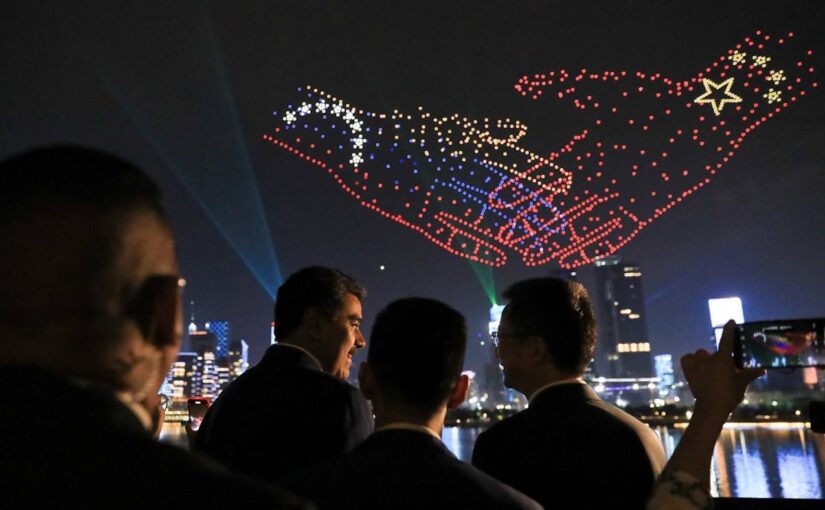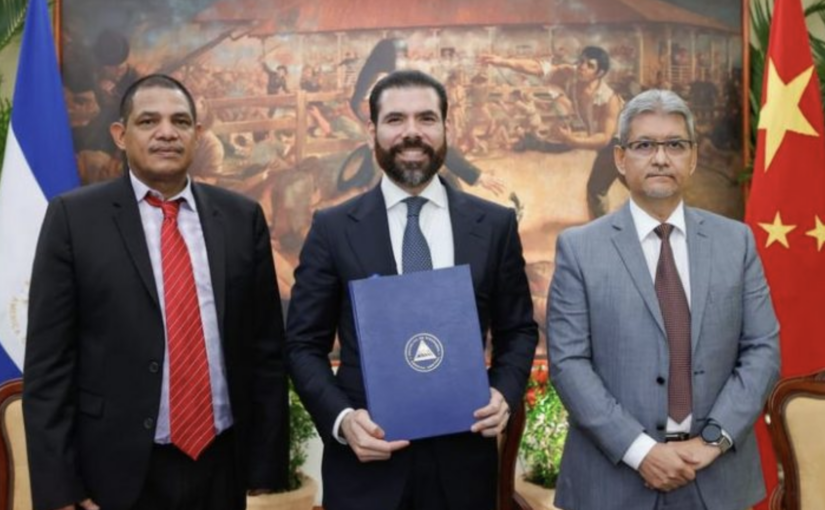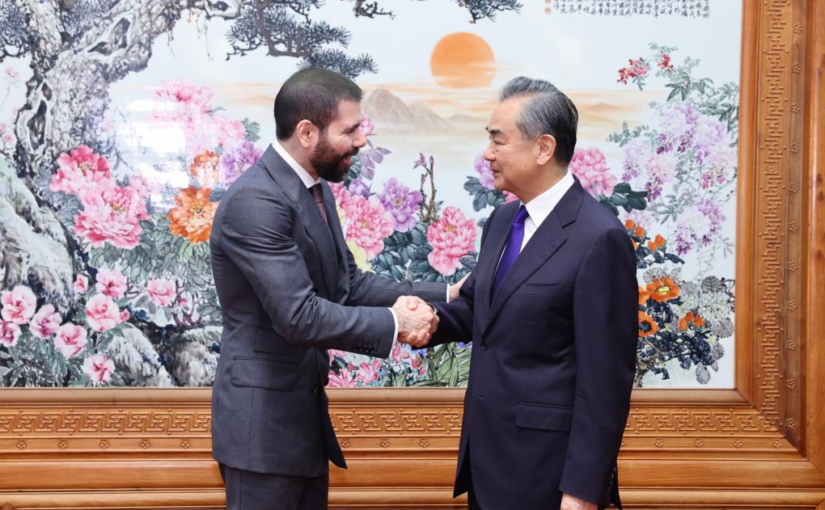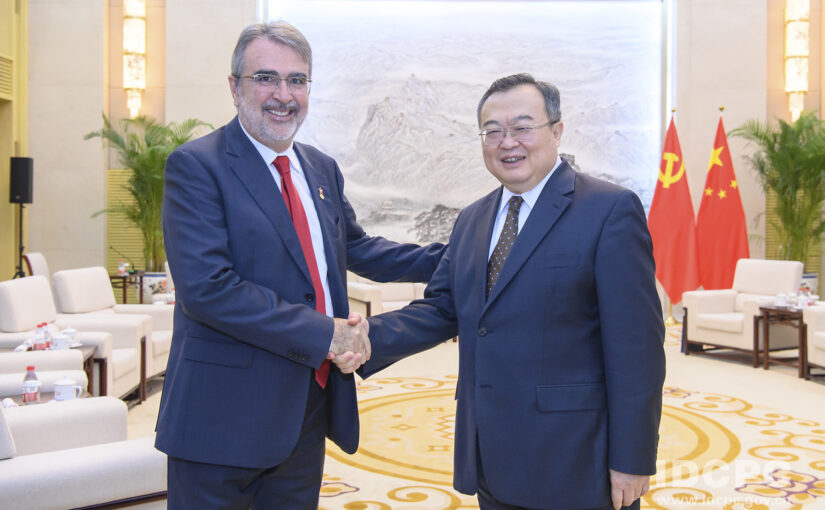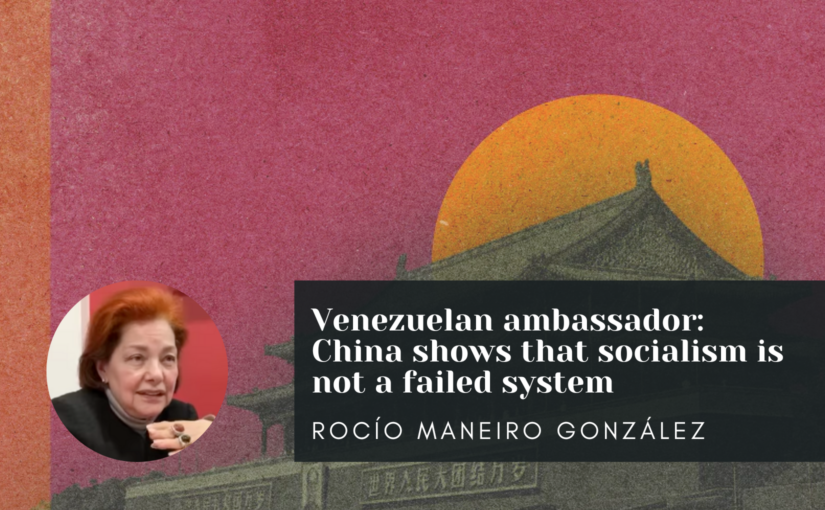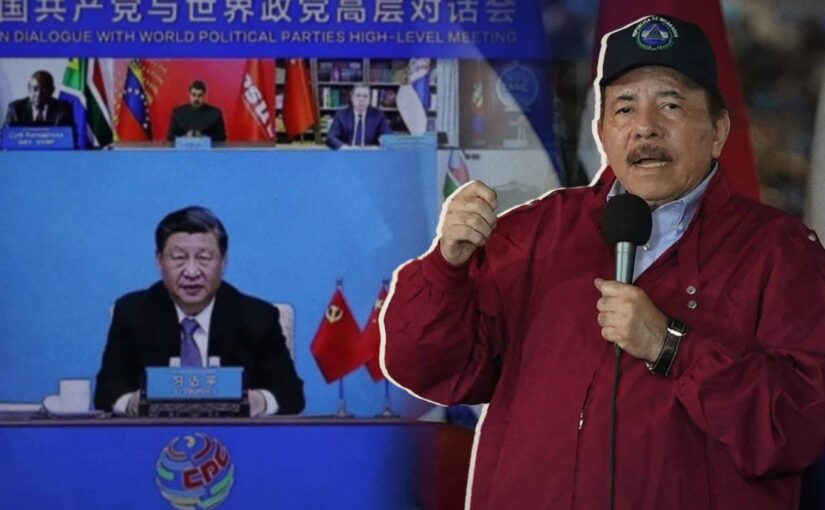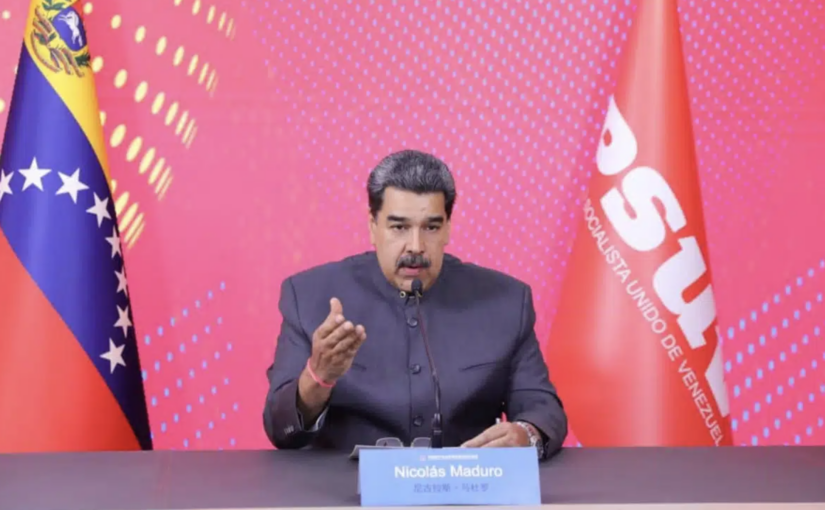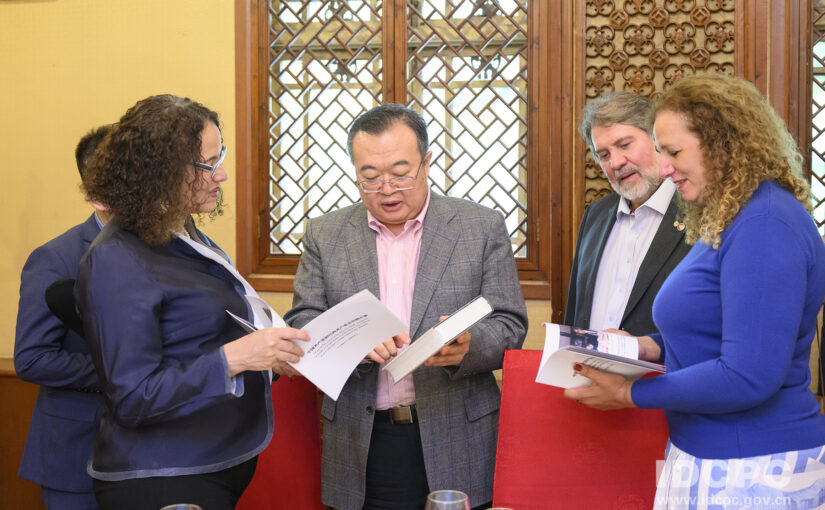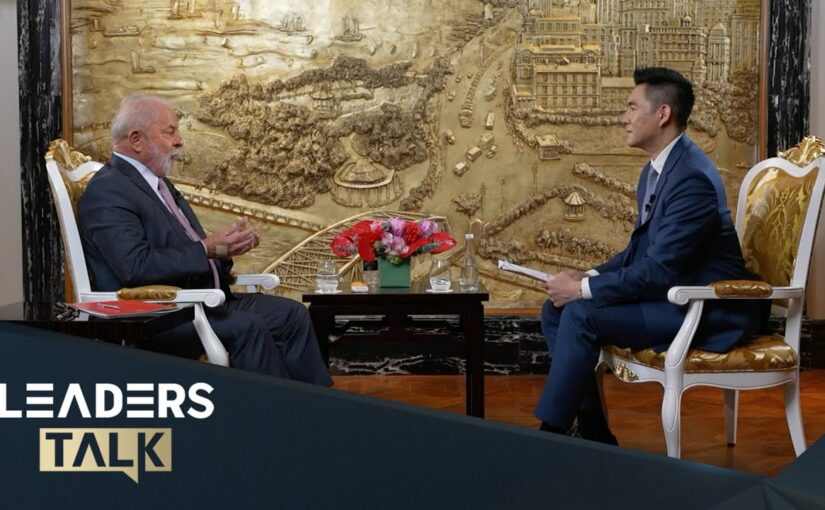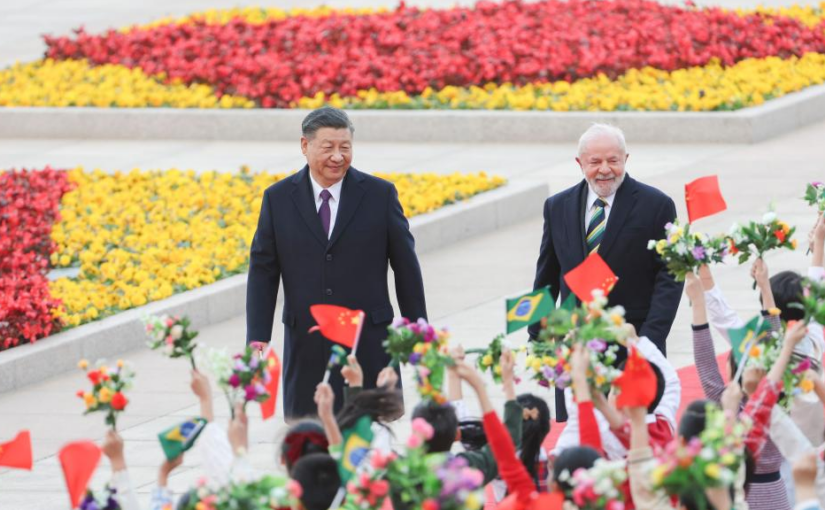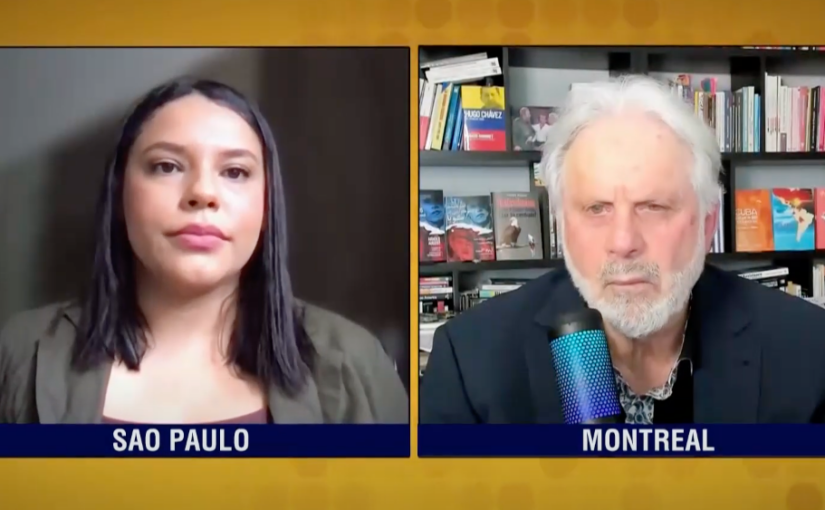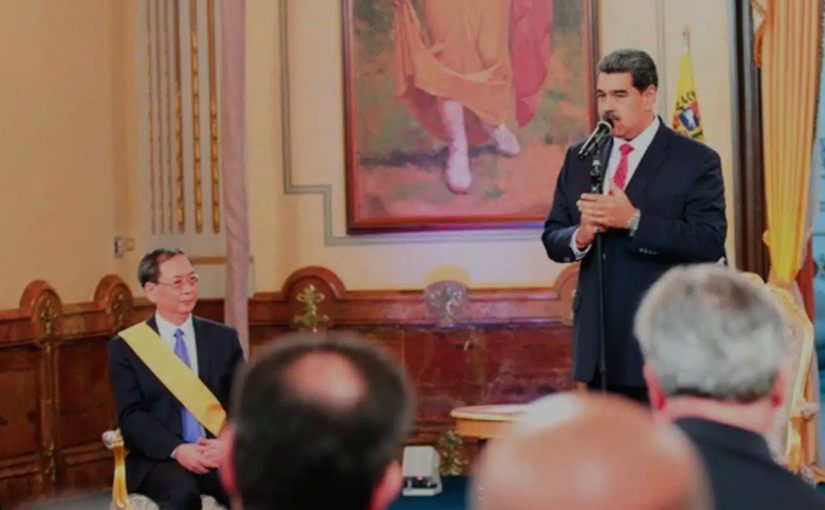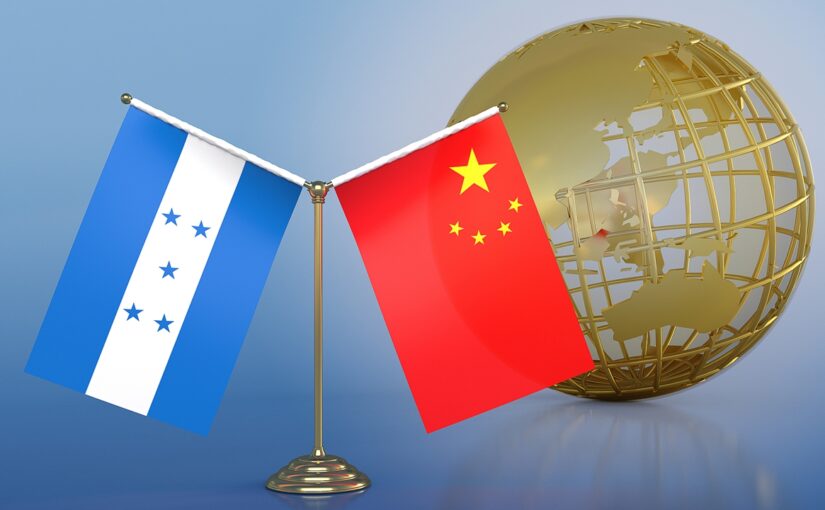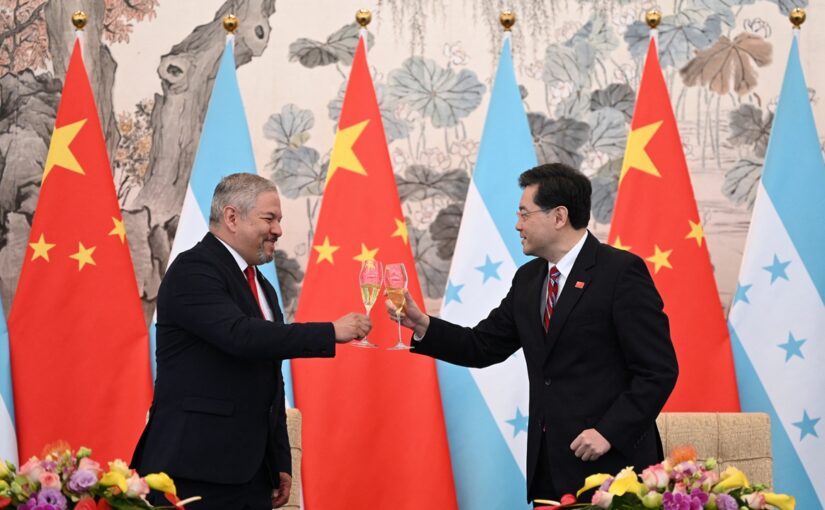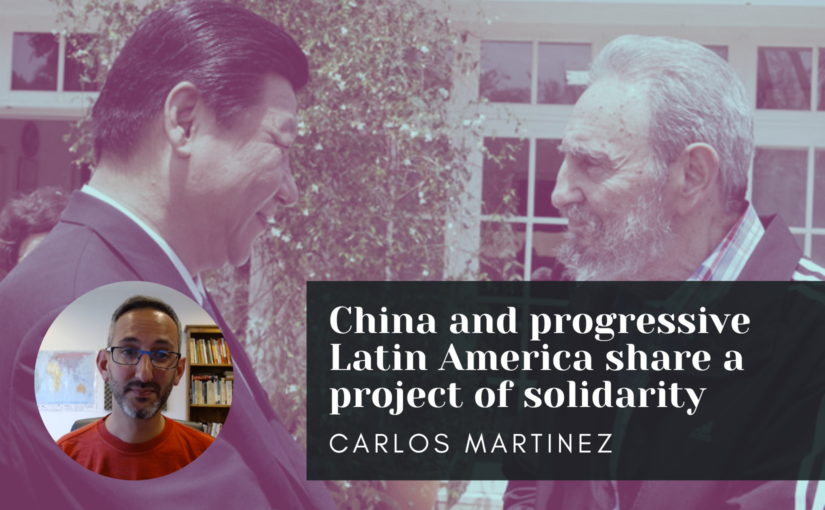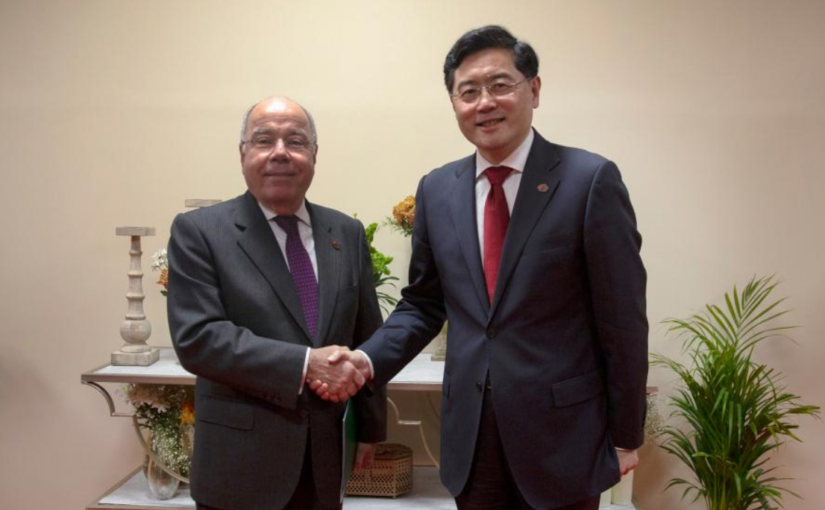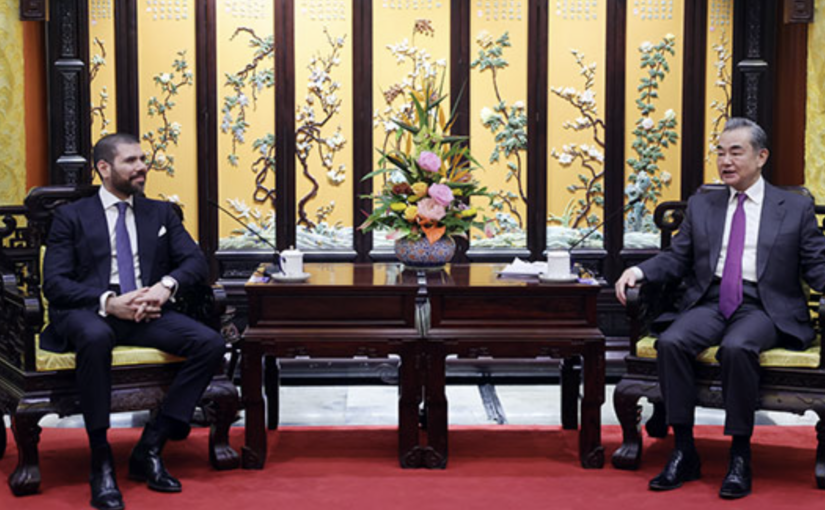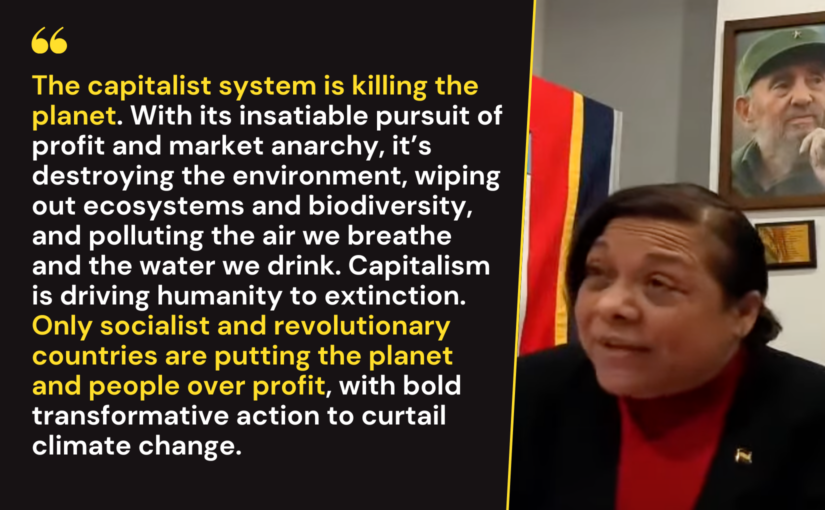Venezuelan President Nicolás Maduro Moros began a week long state visit to China on September 8.
Prior to leaving his capital Caracas, the leader of the Bolivarian revolution gave an exclusive interview to China’s Xinhua News Agency. According to Maduro:
“Between China and Venezuela there is a model relationship, it is a model of what should be the relationship between a superpower like China, the great superpower of the 21st century, and an emerging, heroic, revolutionary and socialist country like Venezuela… China has inaugurated a new era of the emergence of non-colonialist, non-imperialist, non-hegemonic superpowers.”
Referring to President Xi Jinping’s concept of building a shared future for humanity, Maduro said: “I believe that the route that President Xi Jinping has proposed is uniting the peoples in all aspects of the economy, trade, culture and is laying the foundations to leave behind the old world of colonialism and imperialism.”
Noting that China provided vaccines to more than 160 countries during the Covid-19 pandemic, the Venezuelan President continued:
“We have to thank China very much. At the time of the pandemic, if it had not been for China, with the blockade of US imperialism in Venezuela, neither medicines nor sanitary supplies would have arrived, nor the vaccines. Thanks to China, vaccines and medicines arrived, not only to Venezuela, but to more than 160 countries in the world.”
He also expressed Venezuela’s willingness to join the BRICS cooperation mechanism, adding: “The BRICS countries are accelerating the de-dollarisation of the world and the emergence of a new international financial system and a new just economic order, for which humanity has been fighting for years, decades and centuries.”
The interview was originally published by Xinhua in Spanish. We reprint below an English-language translation published by Internationalist 360°.
Venezuelan President Nicolas Maduro declared that the peoples of China and Venezuela are friends who share “a common destiny in the world to come”, while stressing that both nations are committed to peace, development and cooperation.
“Between China and Venezuela there is a model relationship, it is a model of what should be the relationship between a superpower like China, the great superpower of the 21st century and an emerging, heroic, revolutionary and socialist country like Venezuela,” Maduro emphasized in an exclusive interview with Xinhua before beginning his state visit to China.
Regarding the role played by China in the emergence of a fairer world, the President affirmed that the Asian country “has inaugurated a new era of the emergence of non-colonialist, non-imperialist, non-hegemonic superpowers”.
He also stressed that China, “today, points the way to economic and technological development, social stability and strengthened independence”.
“I believe that the relations between the governments and peoples of China and Venezuela are relations of intimate mutual trust, of true brotherhood, of cooperation for shared development”, said the President.
He also described the bilateral ties as fruitful and stressed that “we mutually nourish each other with great ideas, with great projects”.
The Venezuelan president also expressed his country’s firm support for China’s proposal to build a community of shared destiny for humanity that advances towards “respect for our diversity in the union of a different world, (made up of) all the regions of the world”.
Continue reading Nicolás Maduro: Between China and Venezuela there is a model relationship